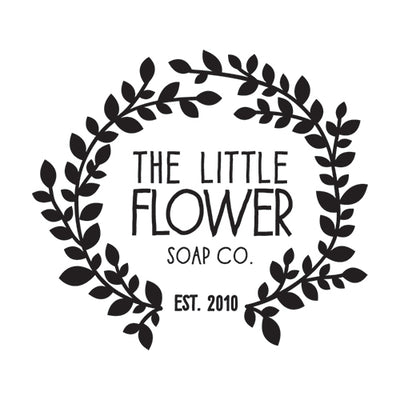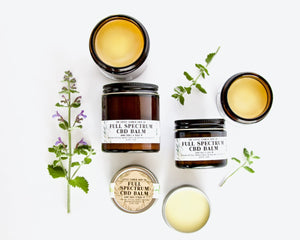As makers of high quality CBD Balm we are used to answering LOTS of great questions from our dear customers about CBD. Here are the top 20 questions we hear answered and sourced. If you have any other questions after reading this article please get in touch anytime HERE
CBD (Cannabidiol) products have gained immense popularity in recent years, and among them, CBD lotions, salves, balms, topicals, and creams have garnered significant attention for their potential therapeutic benefits. In this blog post, we'll address the 20 most frequently searched questions about these CBD-infused topical products, providing answers supported by reputable scientific and medical sources.

1. What is CBD?
- CBD is a non-psychoactive cannabinoid found in the cannabis plant. Source
2. How do CBD topicals work?
- CBD topicals work by interacting with cannabinoid receptors in the skin's endocannabinoid system, potentially providing localized relief. Source
3. Can CBD topicals make me high?
- No, CBD topicals do not containenough THC (the psychoactive compound) to produce a high. Source
4. Are CBD topicals legal?
- In many countries, CBD topicals derived from hemp (containing less than 0.3% THC) are legal. Laws vary, so check your local regulations. Source
5. What conditions can CBD topicals help with?
- CBD topicals may help with localized pain, discomfort, and skin conditions like eczema and psoriasis. Source
6. Are there any side effects of using CBD topicals?
- Side effects are rare but can include skin irritation or allergies. Source
7. How should I apply CBD topicals?
- Apply a small amount to the affected area and massage it in gently. Follow the product's specific instructions. Source
8. How long does it take for CBD topicals to work?
- Effects can vary but may be felt within 3-5 minutes after application.
9. Can I use CBD topicals with other medications?
- Consult your doctor before combining CBD topicals with other medications, especially if you're taking prescription drugs. Source
10. Can I use CBD topicals during pregnancy or while breastfeeding? - It's recommended to avoid CBD during pregnancy and breastfeeding due to limited research on its safety in these situations. Source
 11. Are there any drug interactions with CBD topicals? - CBD may interact with certain medications, so consult your healthcare provider if you have concerns. Source
11. Are there any drug interactions with CBD topicals? - CBD may interact with certain medications, so consult your healthcare provider if you have concerns. Source
12. Can you overdose on CBD topicals? - CBD is generally considered safe, and overdosing is unlikely. Source
13. Do CBD topicals have an expiration date? - Some CBD topicals have a shelf life; check the product label for expiration dates. Source Storing cbd in a cool dark place can help extend its shelf life. The Little Flower Soap Co CBD is good for 6 months or longer if stored properly.
14. Are there different types of CBD topicals? - Yes, CBD topicals come in various forms, including creams, balms, salves, and lotions. Source
15. Are full-spectrum or broad-spectrum CBD topicals better? - The choice between full-spectrum and broad-spectrum depends on your preferences and needs. Full-spectrum contains all cannabinoids, including THC, while broad-spectrum excludes THC. Source
16. Can you use CBD topicals on your face? - Yes, but be cautious and choose products formulated for facial use to avoid irritation. Source
17. How is the quality of CBD topicals ensured? - Look for products tested by third-party laboratories and check for Certificates of Analysis (COA) to verify quality. Source.
Certificate of Analysis for our full spectrum CBD jars is available to view HERE
Certificate of Analysis from our full spectrum CBD Balm twist up tubes is available to view HERE
18. Can I travel with CBD topicals? - Check the laws of your destination, as CBD laws vary by location. Most countries allow CBD topicals with low THC content. Source
19. Are CBD topicals addictive? - CBD is not considered addictive. It does not produce the euphoria associated with THC. Source
20. Can I make CBD topicals at home? - Yes, you can make DIY CBD topicals using CBD oil or isolate. Ensure proper dosing and follow a reliable recipe. Source
Conclusion:
CBD topicals offer a promising avenue for addressing localized issues, and their popularity continues to grow. However, it's essential to use them responsibly and consult with a healthcare professional if you have specific medical concerns or questions. Always research and select reputable products to ensure safety and effectiveness.

